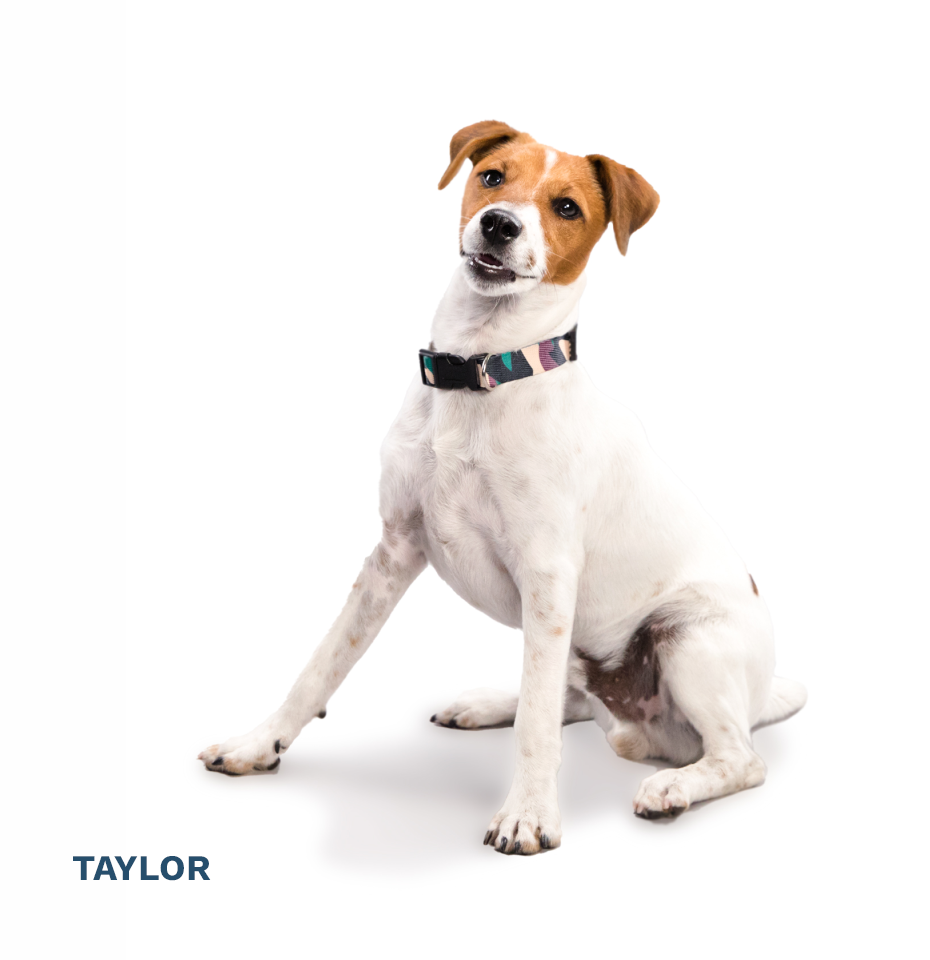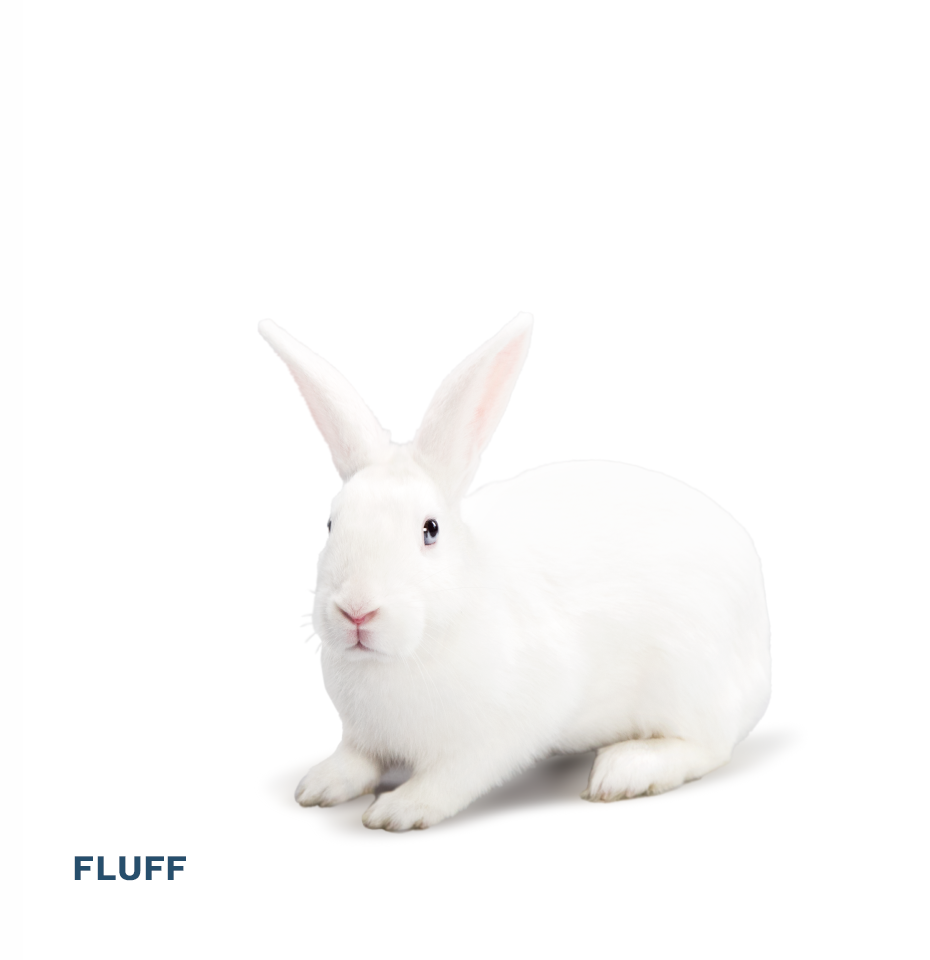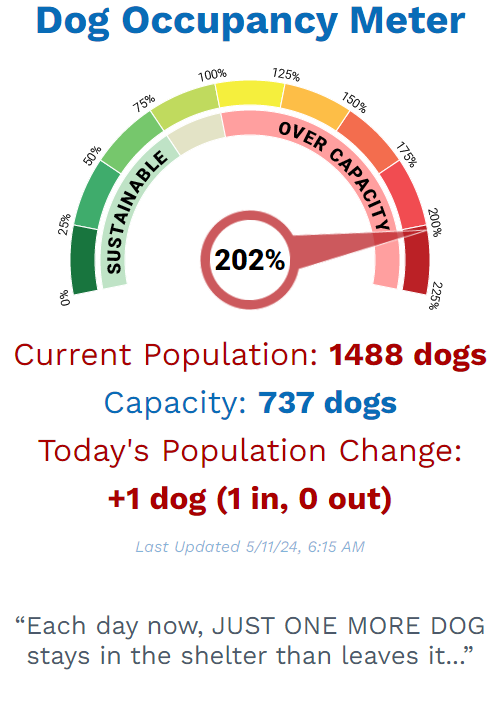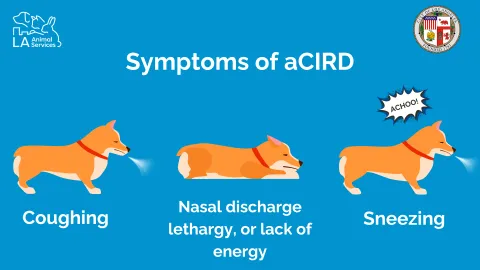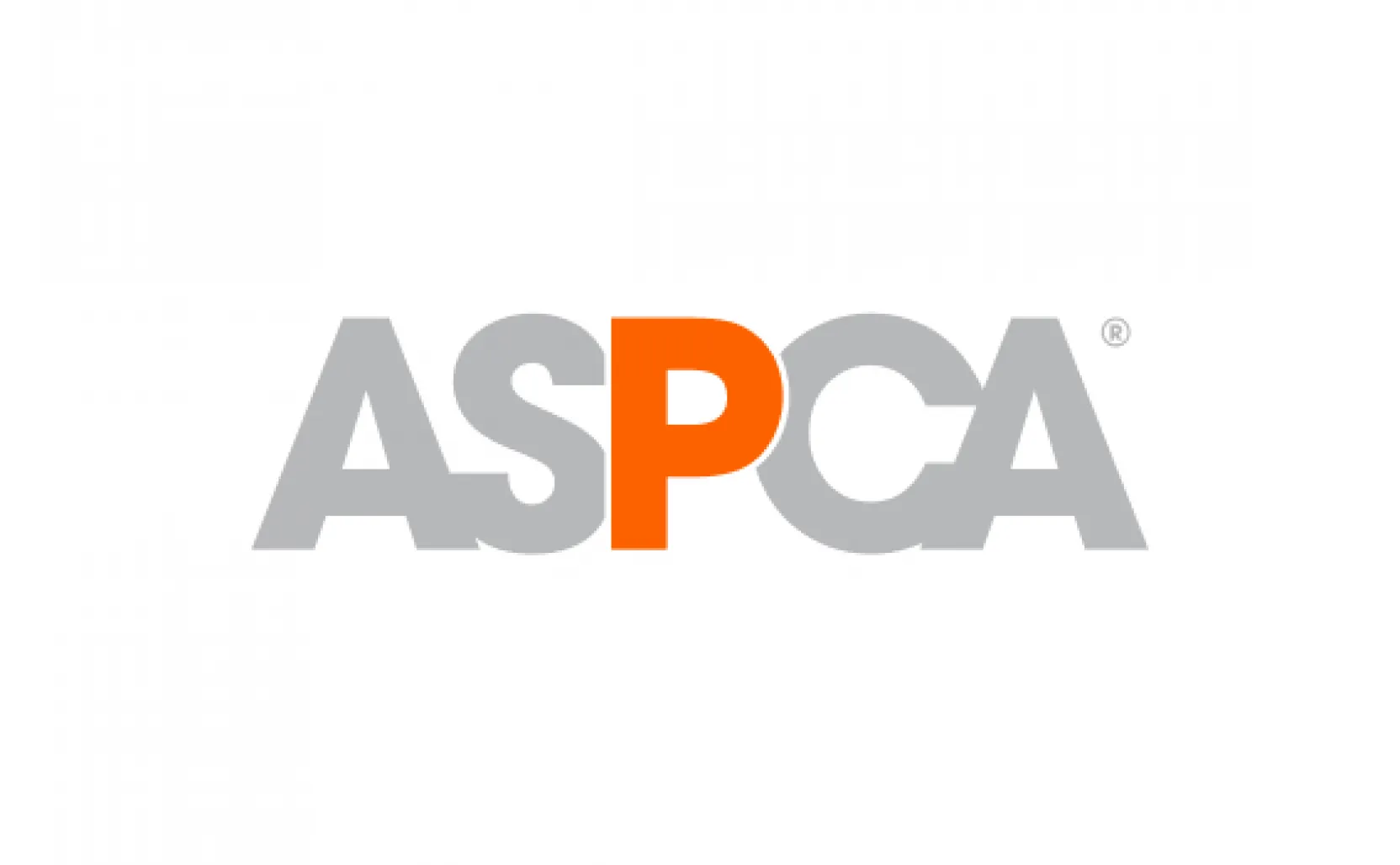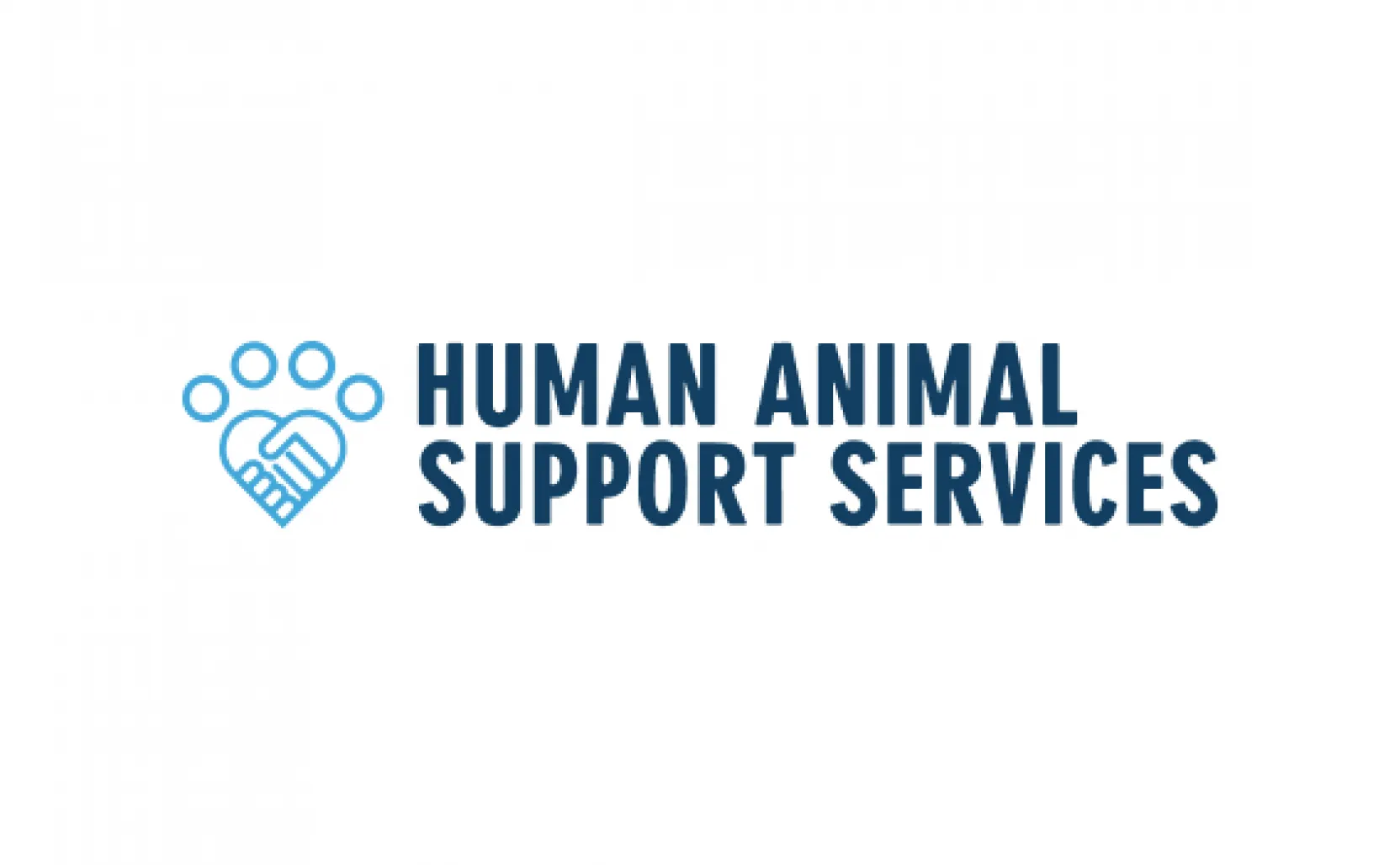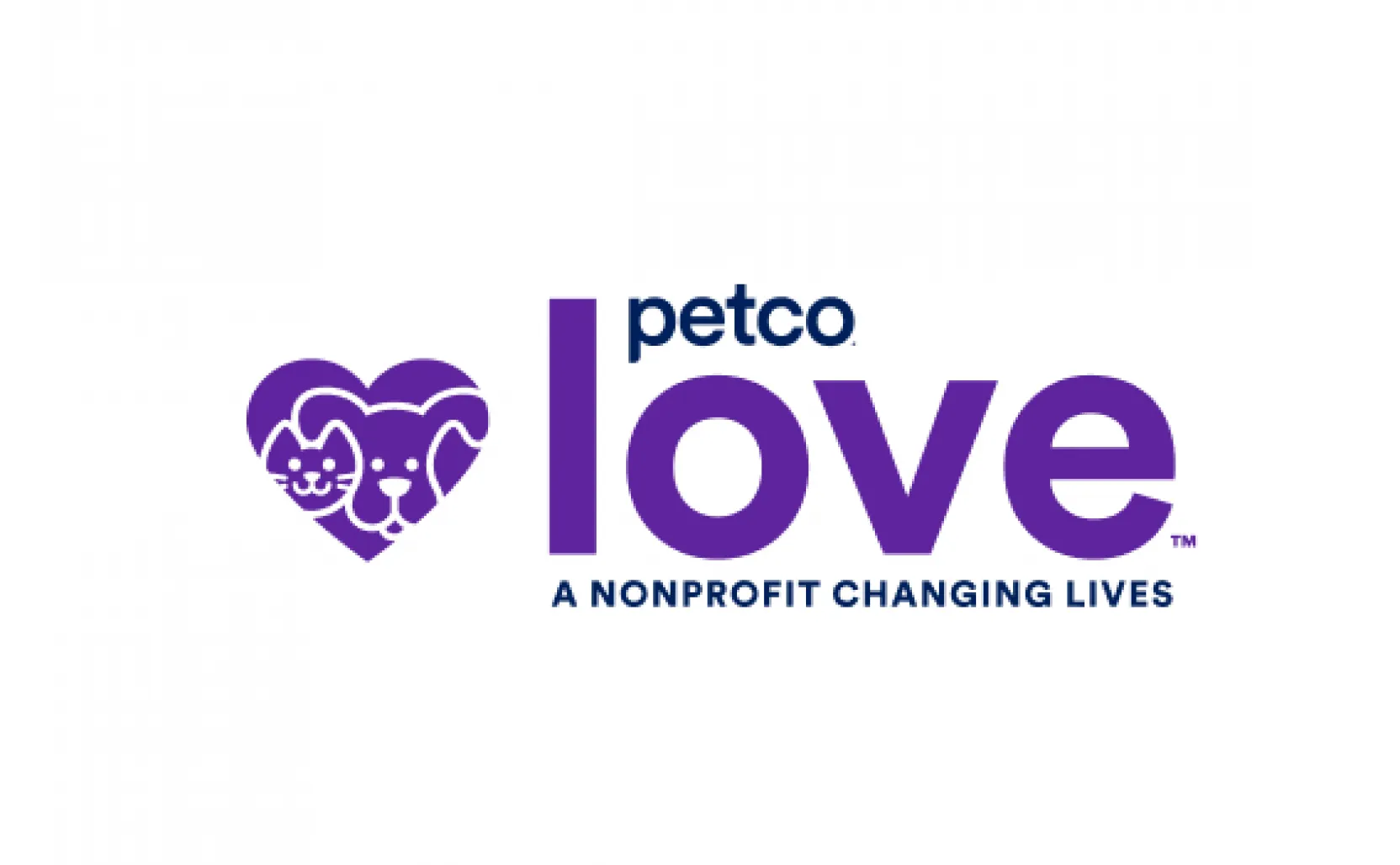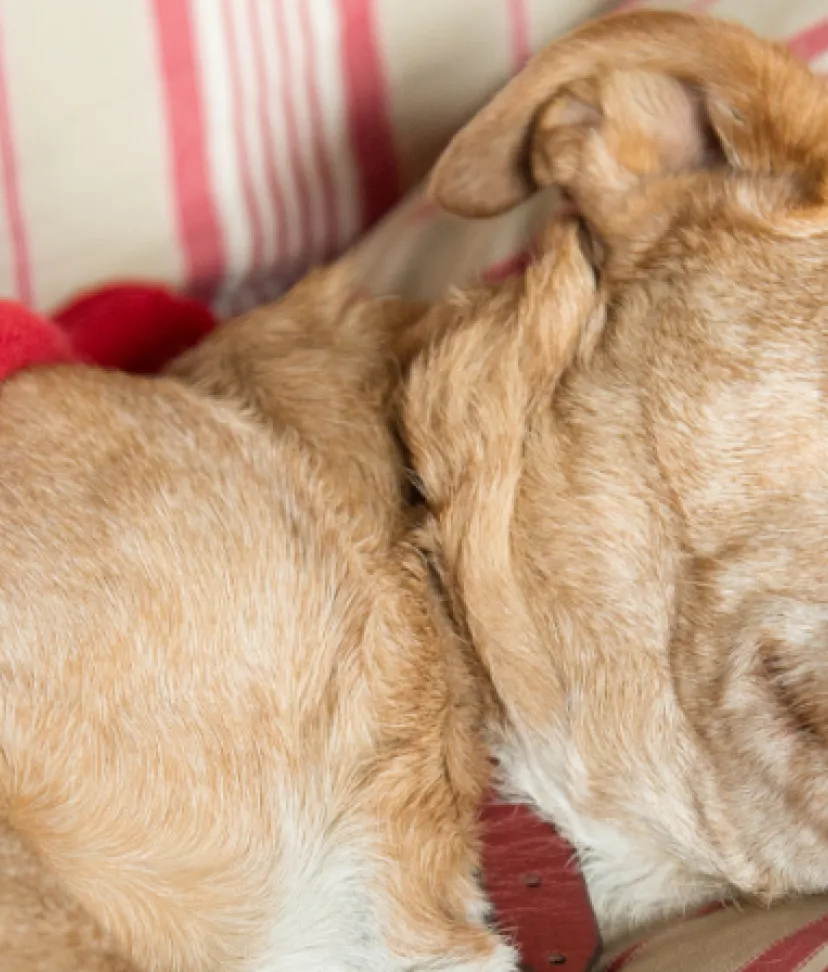
Atypical Canine Infectious Respiratory Disease (aCIRD)
As of January 22, 2024 the Los Angeles County Department of Public Health’s Veterinary Public Health Program has received 44 case reports from veterinarians about dogs that have respiratory illness, but tested negative on the respiratory panel that tests for common viruses and bacteria seen in dogs with similar symptoms.
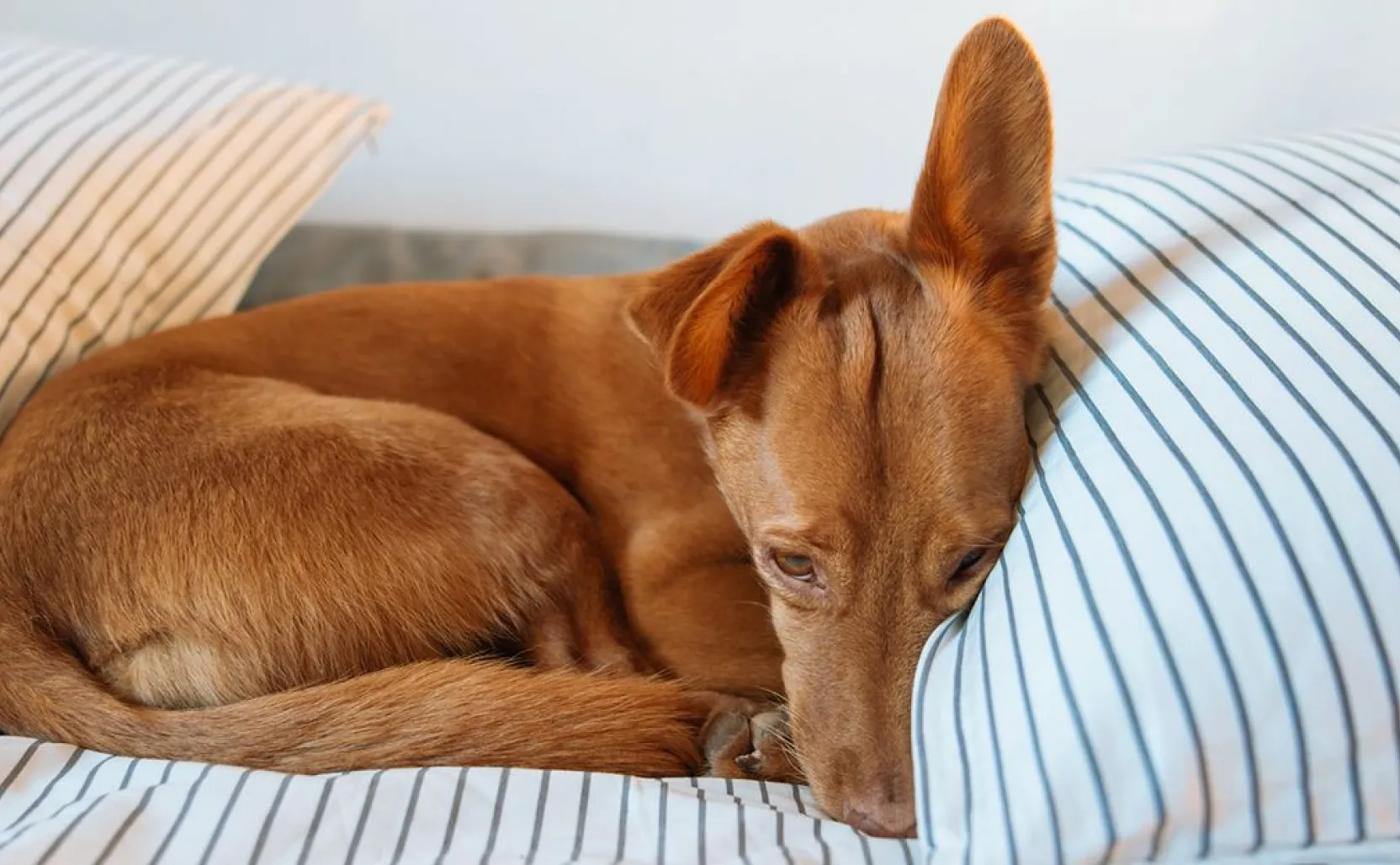
Canine respiratory infections such as “kennel cough” are common among dogs. Atypical canine infectious respiratory disease (aCIRD) appears to be different than regular kennel cough because dogs appear to cough for longer periods (6-8 weeks) or sometimes become more severely ill, developing pneumonia. Dogs with aCIRD also test negative for the bacteria and viruses that are the most common causes of kennel cough. Please note that cases of regular kennel cough are also occurring in LA County at this time.
(aCIRD) is currently defined as having a negative canine respiratory PCR test panel, which tests for the most common viruses and bacteria in dogs that usually cause respiratory symptoms, PLUS one of the following:
- Coughing and other respiratory symptoms that last more than six weeks
- Pneumonia, either rapid in onset or occurring after weeks of coughing
Click here to download our PDF on aCIRD in English.
Symptoms
The symptoms of aCIRD in a dog look identical to those of regular kennel cough, at least at the beginning. Given the lack of knowledge about the cause of this disease, veterinarians and dog owners are advised to be on the lookout for symptoms such as:
If your dog has symptoms
If a dog is experiencing symptoms of atypical canine Infectious respiratory disease (aCIRD) owners should take the following steps:
- Contact your veterinarian so the dog may be evaluated, and possibly given the appropriate tests and medications. It is possible your dog has regular kennel cough.
- Isolate sick dogs at home for a minimum of 28 days past the first day of the onset of illness. A dog should be kept home as long as it has any symptoms. Dogs exposed to the sick dog should quarantine at home and away from other dogs for 14 days to monitor them for signs and symptoms of illness.
- Clean regularly and disinfect surfaces, doorknobs, keyboards, and animal equipment. To disinfect, use an EPA-registered disinfecting product. Always read and follow carefully the instructions on the disinfectant label.
- Keep the dog home and away from day care, boarding kennels, grooming facilities, and dog parks for 28 days minimum. Or until all the symptoms are gone, whichever is longer.
- If a dog becomes ill after being boarded or being in a facility, owners should take it to a veterinarian for evaluation and they should also notify the facility about the illness.
Prevention
- If your dog develops signs of respiratory illness, keep it away from other dogs for at least 28 days or until all the symptoms are gone.
- If your dog has respiratory symptoms and is lethargic or eating less, contact your veterinarian. There are a variety of causes of coughing in dogs, many of which are not contagious, so it is important to have a veterinarian examine your dog if they are sick for more than a couple of days, or if they are very sick.
- Make sure your dog(s) are vaccinated against some of the common causes of kennel cough, including Bordetella, parainfluenza, canine adenovirus, as well as for influenza H3N2, and distemper.
- If you plan to bring your dog(s) to a day care, boarding kennel or groomer, it is recommended that:
You make sure your dog is fully vaccinated at least one week before entering the facility.
Choose facilities that are well ventilated and not overcrowded, that require proof of vaccination, that monitor the health of the dogs closely, and that ask about your dog’s health before they enter the facility.
-
If you adopt a new dog from a breeder or shelter, keep it away from other dogs for two weeks to make sure it does not develop a respiratory illness.
To stay up to date on atypical canine infectious respiratory disease, visit the County of Los Angeles Veterinary Public Health Services.
Information on aCIRD is provided by the Los Angeles County Department of Public Health’s Veterinary Public Health Program.

